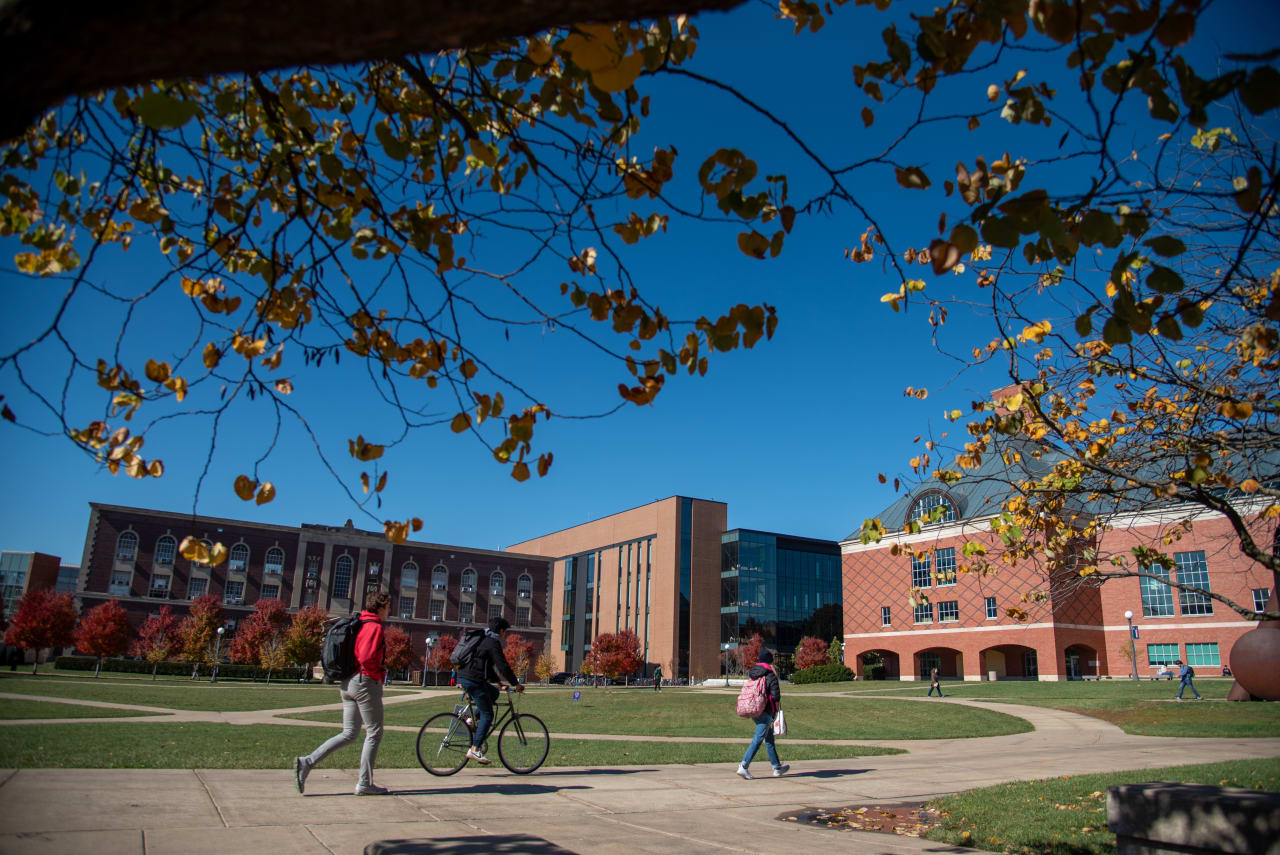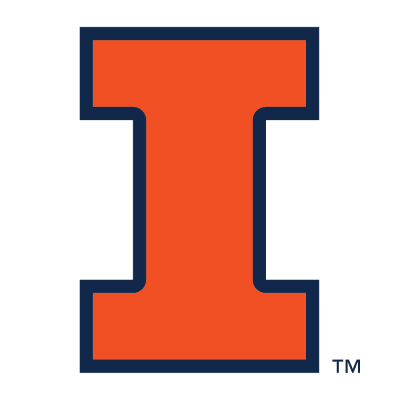
Master of Engineering (M.Eng.) in Bioengineering
University of Illinois Urbana-Champaign – The Grainger College of Engineering

Key Information
Campus location
Urbana, USA
Languages
English
Study format
Distance Learning, On-Campus
Duration
1 - 5 year
Pace
Full time, Part time
Tuition fees
Request info
Application deadline
Request info
Earliest start date
Request info
* You will be able to find your program tuition by visiting the following link - https://cost.illinois.edu/
Introduction
Master of Engineering (M.Eng.) in Bioengineering
Designed for those looking for a stepping stone to technical and managerial careers in the healthcare industry, our professional master’s degree program combines the strengths of The Grainger College of Engineering and the Gies College of Business at the University of Illinois. Graduates are equipped with bioengineering technical skills and big-picture business perspective—trained to find creative solutions to complex, multi-level systems problems.
The Bioinstrumentation concentration focuses on medical imaging devices, and trains engineers to be industry leaders by combining rigorous graduate-level engineering coursework with fundamental business training on issues that confront professionals who develop products for biomedical imaging, medical diagnostics, genomics, and tools used in life science research.
The general bioengineering concentration is designed to bridge the skills gap between general bioengineering concepts and business acumen through coursework and an applied consulting project. The in-depth technical training combined with the core business classes required will develop well-rounded professionals entering the healthcare industry.
Admission requirements
Minimum Requirements
For the General Bioengineering and Bioinstrumentation concentrations:
- Bachelor’s degree in engineering, science or related discipline
- GPA 3.0 minimum for the last two years of undergraduate study
- GRE optional
- For applicants whose degree is not from an institution where English is the official language, TOEFL or IELTS test results are required
Applicants with non-engineering degrees need to have a solid engineering foundation during their undergraduate studies. This includes coursework in physics, advanced math (through calculus, linear algebra, and differential equations), statistics and chemistry. Biology courses are also beneficial.
Selection Criteria
Applications are reviewed in their entirety, not just grades. Your personal essay as well as your letters of recommendation are just as important. We understand that there may be extenuating circumstances to explain GPAs, so we look at your entire background.
The primary skills we look for are your potential to be a leader, whether through the co-curricular activities you have been involved with or through some of the academic things you have done. We do not require any internship or work experience, but that would be a bonus.
In addition, for the on-campus program, even if your TOEFL score is less than the minimum required of 103, this just means that, if accepted to the program, you might have to take English as a Second Language when you are on campus. It does not automatically mean that you will not qualify for our program. For the online M.Eng. program, students must meet the full admission TOEFL requirement (103 and above).
Applications are reviewed on a rolling basis, and we would be able to make a decision regarding your application sooner if you submit your application earlier than the deadlines noted.
Program content
The program trains students to be industry leaders by combining rigorous graduate-level technical coursework with fundamental business training on issues that confront professionals in the healthcare industry.
The program is designed as a unique discovery experience, offering greater technical depth than is possible in an undergraduate program, while providing the tools you’ll need to successfully work within multidisciplinary teams. The coursework provides opportunities to become proficient within your technical discipline at the graduate level, and the background to become an effective manager or supervisor in the health care field.
Students need to complete the following coursework requirements:
- Minimum of 32 credit hours comprised of 18 hours of Bioengineering coursework, 8 hours elective coursework, and 6 hours of professional development.
- Students must select the concentration track they plan to complete at the time of admission. Students cannot complete multiple concentrations.
General Bioengineering
Fall Semester
- Seminar series
- Managing Business Operations (4 hours) – Covers fundamental business concepts, including project management, process management, supply chain management, and product development.
- Team Project – part 1
- Technical Electives – choose BIOE 400- or 500-level courses in consultation with advisor
- General Elective – choose 400- or 500-level course in consultation with advisor
Spring Semester
- Seminar series
- Innovation and Introduction to Financial Decision Making
- Team Project – part 2
- Technical Electives – choose BIOE 400- or 500-level courses in consultation with advisor
- General Elective – choose 400- or 500-level course in consultation with advisor
Bioinstrumentation
Fall Semester
- Seminar in Bioinstrumentation – Various speakers from the industry share their real-world experiences and knowledge.
- Biological Measurement I – Introduces fundamental concepts related to the detection and analysis of biological analytes, biomedical images, and physiological parameters.
- Managing Business Operations– Covers fundamental business concepts, including project management, process management, supply chain management, and product development.
- Team Project – part 1
- Electives (4-8 hours)
Spring Semester
- Seminar Series (1 hour) – Various speakers from the industry share their real-world experiences and knowledge.
- Biological Measurement II (4 hours) – Advanced techniques relating to state-of-the-art bioinstrumentation technologies.
- Innovation and Introduction to Financial Decision Making (4 hours) – Covers fundamental business concepts, including finance and innovation.
- Team Project – part 2
- Electives (4-8 hours)
Scholarships & funding
Several scholarship options are available. Please check the institute website for more information.
Career paths
Reflective of the interdisciplinary nature of the field of bioengineering, students who have graduated from the Master of Engineering program have pursued various careers. Many have gone on to work in industry, while others have continued to pursue further advanced degrees (MD, PhD, MS, etc.).
Here are examples of a few companies (ranging from large, global firms to start-ups) and programs that our students have joined:
Companies
- 10x Genomics
- Welch Allen
- Tempus Lab
- United Imaging, China
- US Med-Equip
- Stryker
- Prognosis
- Insights
- Baxter
- University of Illinois Urbana-Champaign
- Zimmer Biomet
- Health Scholars
- PhotoniCare
- Viv Labs
- Karl Storz (Shanghai)
- Harvard Medical School
- Qualcomm
- AbbVie
- Phillips
- AveXis
- Dickson
- Center for Magnetic Resonance Research – UIC
- Accenture
- MedLine
- Abbott
- Johnson & Johnson
Job titles:
- Microfluidics Engineer
- Systems Engineer
- Data Analyst
- Biomedical Project Engineer
- Quality Engineer
- Regulatory Affairs Specialist
- Research Development Lab Technician
- Research Engineer
- Chemist
- Process Engineer
- Validation Engineer
- Research Associate
- Technology Analyst
- Field Clinical Engineer
- Associate Product Manager
- Clinical Account Specialist
Program Language Requirements
The TOEFL iBT® test is accepted by 11,500 universities and higher education institutions in over 160 countries. Book your test today!
Sponsored partner